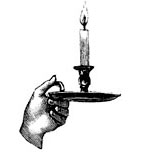
Ripeness Is All
GUEST COLUMN
What is it about age 31? For years, in fact until the day he died, Pascal carried around a handwritten note on his person. It read:
The year of grace 1654.
Monday, 23 November, feast of St. Clement,
Pope and Martyr, and of others in the martyrology.
Eve of Saint Chrysogonus, Martyr, and others.
From about half past ten in the evening until half past midnight.
Fire
God of Abraham, God of Isaac, God of Jacob,
not of philosophers and scholars….
This is, by virtue of its intensity, an alarming testament. But more alarming still is its date. In 1654 Pascal would have been 31 years old. Take someone else — Dostoevsky, say, who underwent a similarly decisive experience exactly 200 years later at the end of a term of penal servitude in Siberia. Dostoevsky’s age at the time? He entered prison at age 29; he left at age 33. The list could go on and on, for it is endless. Time after time people from all centuries and all nations appear to undergo a conversion of one sort or another around the time of this, their 31st year, to heaven. St. Augustine? Thirty-one. T.S. Eliot? Twenty-nine. Dorothy Day? Thirty. W.H. Auden? Thirty-three. C.S. Lewis? Twenty-nine. Juliana of Norwich? Thirty-one. St. Paul? Thirty-three. Eric Gill? Thirty-one. The event occurs with such regularity at or around the 31st year that one might almost assume a “religious crisis,” as it is commonly called, to be a biological event.
That established, two questions immediately come to mind.
You May Also Enjoy
In every Percy novel there is a complex, religiously sensitive yet also modern and scientific sensibility at work.
Good fiction uses the events and tensions of everyday life on one level to draw us deeper and deeper into the writer’s perception of truth or reality on another.
Our rewriting of the great drama of life, which should proceed like a mysterious tale full of wonder and engagement, is a sad soliloquy.

